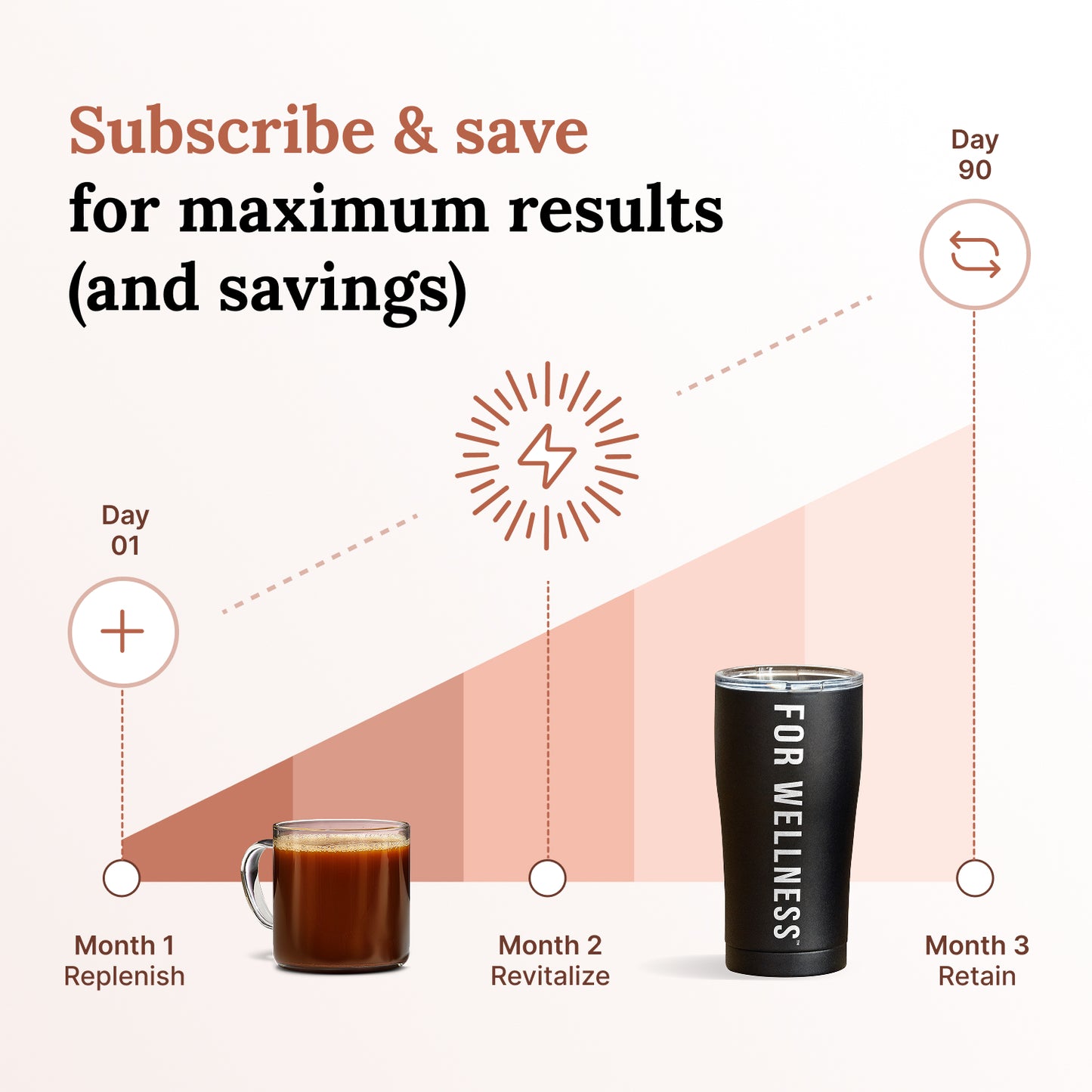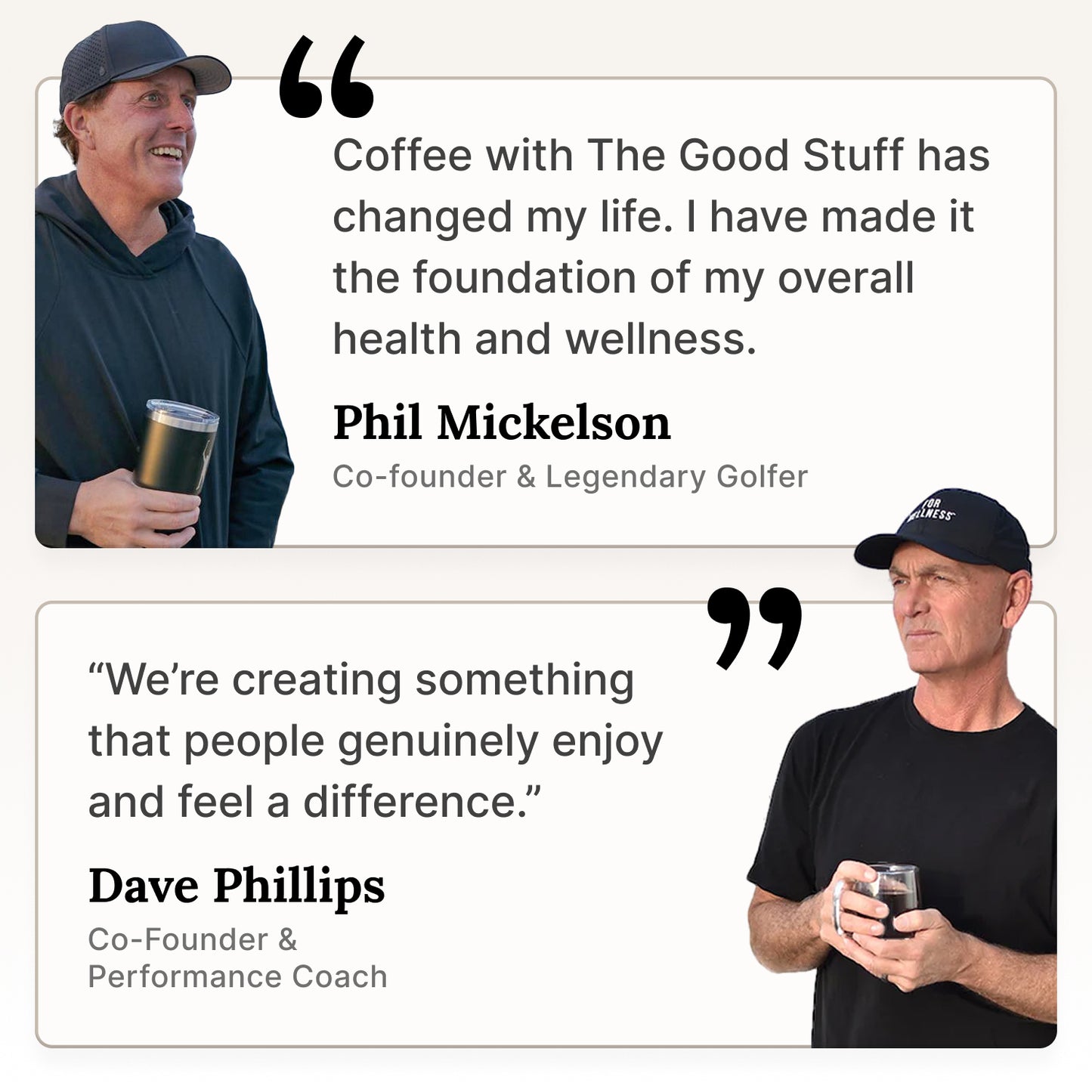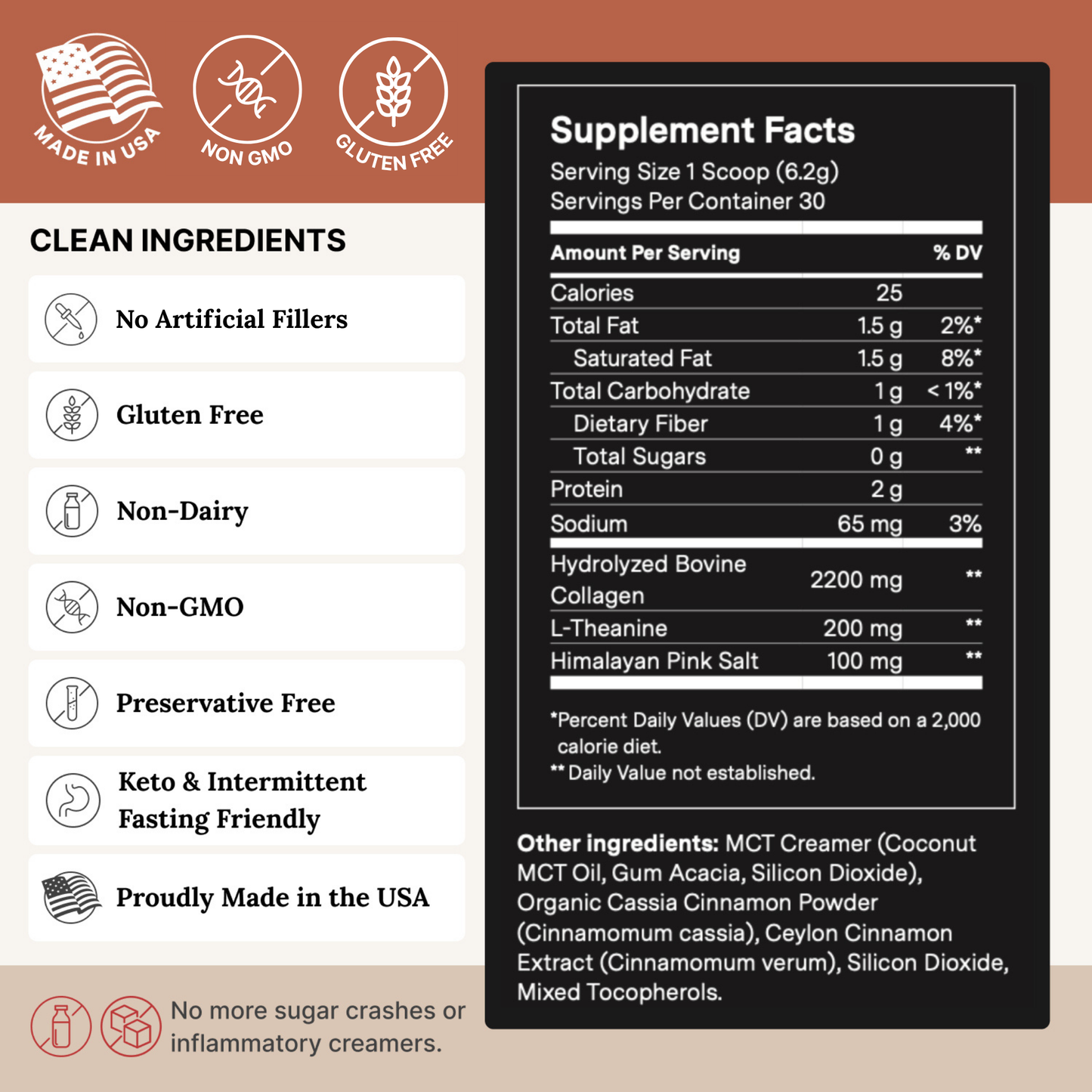As the new year dawns, many of us engage in goal setting and making resolutions, viewing it as a fresh start to break a bad habit or learn a new skill. But, if you've ever found yourself skeptical about the practicality of common resolutions—like getting six-pack abs, swearing off sugar for life, or quitting smoking cold turkey—rest assured, you're not alone.
The failure rate for New Year’s resolutions is said to be around 80%, with most Americans finding their commitment and motivation waning as early as mid-February. The problem? Many people make lofty resolutions that aren’t very realistic or conducive to long-term success.
The solution? Instead of setting unrealistic goals (and beating yourself up for not achieving them), focus on making small, sustainable changes. While these goals might not be grandiose, their effects add up, ultimately creating a substantial impact.
To give you some inspiration, we’ve rounded up ten easy New Year’s resolution ideas that will enrich your life subtly but significantly.


The Good Stuff - Performance
-
One scoop will infuse your coffee with healthy ingredients
-
Ditch the bad stuff like sugar, dairy, and artificial creamers
-
Fights inflammation and supports skin and joint health
-
Makes your coffee taste great
#1: Cook a Plant-Based Dinner Once a Week
Why: Integrating a plant-based dinner into your weekly routine is a proactive step toward a healthier lifestyle. It’s not just about cutting out meat, dairy, and eggs—it’s about embracing more plant foods that are brimming with vitamins, minerals, and fiber.
Plant-based diets have been shown to lower your risk of several serious health conditions, including heart disease, certain cancers, cognitive decline, obesity, and type 2 diabetes.
What’s more, eating more plant-based foods can help protect the environment. One review of 63 studies showed that a 70% reduction in greenhouse gas emissions and land use and 50% less water use could be achieved if people in the Western world shifted to a more plant-based diet.
How: Plan your plant-based meals in advance, perhaps when you create your weekly grocery shopping list.
Start with simple recipes using familiar ingredients to ease the transition. Remember, just because you're using meat, doesn't mean you have to skimp on the seasoning!
Keep a journal of the recipes you’ve tried and the ones you particularly enjoyed to build a repertoire of go-to plant-based meals.
Bonus: To further boost your plant-based food intake, consider keeping healthy plant-based snacks on hand, such as veggies with hummus, apples with nut butter, and Superfood Focus Bites.
#2: Stay Off Your Phone for 15 Minutes After Waking
Why: The early morning phone-scrolling habit can often lead to starting your day on a stressful note, getting immediately bombarded with information, emails, and social media.
By staying off your phone for the first 15 minutes, you give your mind a chance to wake up calmly, set your intentions for the day, and engage in more mindful morning activities.
How: Place your phone in another room before going to bed, making it less accessible when you wake up.
If you currently use your phone as an alarm, set two alarms - one for one you get up, and one for 15 minutes after that, so you guarantee yourself a full 15 minutes phone-free.
Replace phone-checking with healthy habits, like stretching, meditating, creating a to-do list for the day, writing in a gratitude journal, or simply enjoying a quiet cup of tea or coffee.
#3: Lay Out Your Work Clothes Every Night
Why: Picking out your clothes the night before saves time, reduces decision fatigue, and allows you to start your day more calmly and organized. It also ensures you have the time to choose an outfit that makes you feel confident and prepared.
How: Make it part of your nightly routine, perhaps after dinner or right before you prepare for bed.
Check the weather forecast for the next day to guide your choice.
Create a special space in your room for your “next day” outfit, like a dedicated hook or chair.
#4: Declutter One Area Each Month
Why: Research has found a correlation between the amount of clutter in one's living space and stress levels. In one study, women who lived in more cluttered environments experienced elevated levels of cortisol—the body's primary stress hormone—throughout their day compared to those in less cluttered spaces.
Clutter can also be distracting. Research suggests the human brain has a limited capacity for the amount of stimuli it can effectively process at one time. When in a cluttered environment, such as trying to work from home amidst disarray, the excess stimuli can impede your ability to think clearly and focus on the task at hand.
On the other hand, decluttering can reduce feelings of anxiety and foster productivity and focus.
How: Create a monthly decluttering schedule, focusing on one area per month, such as a part of a room, a junk drawer, or your car. You don't have to do your whole garage at once!
Play your favorite music or listen to a podcast while decluttering to make the process more enjoyable.
Consider donating items you no longer need to give this activity a sense of purpose beyond just cleaning.
#5: Practice a Daily 12-Hour Overnight Fast
Why: Intermittent fasting (IF) is a practice that involves cycling between periods of eating and fasting, making conscious decisions about the time frames in which you consume your daily caloric intake.
This practice has been found to provide many health benefits, including weight loss and improved insulin sensitivity, heart health, brain health, cellular health, and mental clarity.
How: Start with a simple and sustainable approach, such as the 12-hour fast, which includes your sleep time. For instance, if you finish dinner by 7 pm, refrain from eating until 7 am the next day. This method gently introduces your body to intermittent fasting without feeling too restrictive.
If you’d like, you can extend your fasting window as you grow comfortable with the practice.
#6: Get More Magnesium In Your Diet
Why: Magnesium is a crucial mineral for the body, playing a role in over 300 enzymatic reactions, including energy production, muscle and nerve function, brain function, blood glucose control, and blood sugar regulation.
The National Institutes of Health (NIH) advises that women need 310–400 milligrams of magnesium daily, while men need 400–420 milligrams daily. While it’s rare to have a true magnesium deficiency, many people don’t get enough of it in their diet.
Increasing your magnesium intake can help with muscle cramps, improve sleep quality, and support mental health.
How: Incorporate magnesium-rich foods into your meals in a way that complements your existing diet.
For example, add dark, leafy greens to your smoothies, snack on almonds or cashews, or incorporate whole grains like quinoa and brown rice into your meals.
You can also explore magnesium supplements after consulting with a healthcare provider.
#7: Make One Meal a Day Mindful
Why: Mindful eating is about fully experiencing the food you eat. The opposite of mindful eating is mindless (or distracted) eating, which might entail eating while driving, working, watching TV, or scrolling on your phone.
A mindful eating practice can help you better tune into your body’s hunger and fullness cues, potentially preventing overeating and subsequent weight gain. It also encourages a healthier relationship with food, where you eat for nourishment and enjoyment rather than out of habit or emotion.
How: Choose one meal each day to eat mindfully—perhaps the one you usually rush through.
Turn off the TV and put away your phone.
Focus on the colors, textures, and flavors of your food.
Eat slowly, chewing thoroughly, and try to identify all the ingredients and seasonings.
Reflect on the origins of your food and the effort that went into preparing it.
#8: Start Choosing The Stairs
Why: Opting for the stairs whenever possible is a simple yet effective way to incorporate more activity into your daily routine and improve your physical health.
Regular stair climbing can strengthen your leg muscles, improve cardiovascular health, and increase stamina. It’s also a quick way to burn calories, potentially resulting in weight loss over time.
How: Start by setting achievable goals, like taking the stairs for one or two floors before taking the elevator the rest of the way.
Gradually increase the number of floors as you build endurance.
Turn it into a challenge or track your progress to keep it interesting.
If you’re in a multi-story building, make a habit of using the stairs for shorter trips.
#9: Perform a Random Act of Kindness Each Month
Why: Performing random acts of kindness not only benefits the recipient but also the giver. A 2022 study found that individuals who performed kind gestures experienced a noticeable reduction in symptoms of depression and anxiety, highlighting the profound emotional rewards of altruistic behavior.
Your random acts of kindness might include:
- Paying for a stranger’s coffee.
- Buying a meal for someone in need.
- Writing a thank you note to a service worker you value.
- Offering to return a stranger’s grocery cart to the front of the store.
- Donating unwanted items to charity
How: Keep a kindness journal or list where you jot down different acts of kindness you can perform.
Plan one act each month, but also be open to spontaneous opportunities.
You might choose acts that align with your interests or skills, making them more meaningful and enjoyable for you. For example, if you love baking, you could bake treats for your neighbors, coworkers, or loved ones.
#10: Drink Better Coffee
Why: Incorporating organic coffee into your morning routine can offer more than just an energy boost. Coffee is rich in antioxidants and has been linked to a lower risk of certain health conditions, including type 2 diabetes, Parkinson’s and Alzheimer’s, liver diseases, heart disease, and depression. Plus, coffee with artificial sugars, creamers, flavors can add hundreds of calories to your day and nasty chemicals to your diet.
How: Adding The Good Stuff or The Good Stuff™ Focus to your coffee for an added health boost. This performance coffee supplement contains ingredients like MCT, L-theanine, collagen, organic cinnamon, and Himalayan salt that fight inflammation, increase energy, support skin and joint health, and reduce caffeine jitters.
A Final Word on New Year’s Resolutions
Remember that the journey toward self-improvement is a continuous process filled with both successes and setbacks. The key is not perfection, but persistence and self-compassion. Embrace these resolutions not just as yearly goals but as stepping stones to personal growth, improved overall well-being, and a more fulfilled and balanced life.
Written by Katie Koschalk, a health and wellness writer, certified holistic nutritionist, and certified personal trainer based in California.















